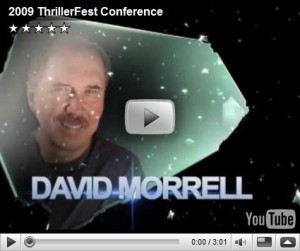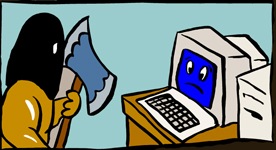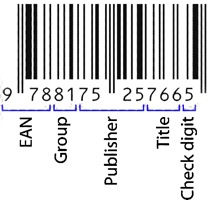By Joe Moore
One topic that seems to show up often with beginning writers is word count. Questions like: Are there rules for counting words? Is my fantasy too long at 600k? How long should a novella be? A short story? How do you get an accurate word count?
Word count can vary depending on genre. And in some cases, genre dictates word count. Readers tend to expect a certain word count in the genre they enjoy and will shy away from books that are longer or even shorter than what they’re used to.
Before we had computers and word processing programs with built-in word count features, the general rule used to be 250 words to a double-spaced manuscript page. Obviously, this was always going to result in an estimate, but a fairly good one. Today, it’s easy to determine your word count. For example, MS Word 2007 displays a running total at the bottom of the screen. So getting an accurate word count is no longer an issue.
How about what’s expected of a contemporary novel? I think the magic number to always aim for is 80k words. Eighty thousand is a good, safe number, especially if you’re a first-time author.
The thing that new writers sometimes forget is that more words mean more pages. More pages mean more printing costs. Does the publisher want to invest additional money into a new author just because he or she won’t give up a single word?
So if you’re writing a mystery or thriller or romance, you’ll be safe if your book is at least 80k words.
What about short stories? The answer is that in almost all cases, the word count on short stories is specified by the publisher. Check the submission requirements of the magazine or anthology to make sure you’re within the guidelines.
I think it’s important to remember that there’s always going to be some wiggle room with word count. No agent or publisher is going to reject your book if you missed the count by 1k or 5k or even 10k, especially if the story blows them away. But try to be accurate. There’s no excuse not to.
As a general rule of thumb, here’s a basic guideline to work count:
- Epic: A work of 200,000 words or more.
- Novel: A work of 60,000 words or more.
- Novella: A work of at least 17,500 words but under 60,000 words.
- Short story: A work of at least 2,000 words but under 7,500 words.
- Flash fiction: A work of less than 2,000 words.
Does your contract specify word count? Have you ever had to trim because the publisher felt the book was too long for your genre? Or add because it was coming in too short? Do you think about word count as you write?




